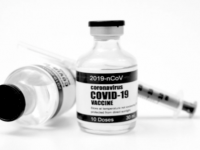An American Osteopath as well as a Canadian public health researcher recently secured a publishing slot in the Journal of the Royal Society of Medicine making the case for more cost transparency with the COVID-19 vaccines. The paper correlates pharmaceutical pricing to real-world vaccine inequity. Their core driving principle: a vaccine with high costs is essentially the equivalent to no viable vaccine for a great number of low-and-middle-income (LMICs). The authors propose that these vaccines should be a “public good” given the globally integrated, public nature of the pandemic not to mention the extensive public underwriting. Reports that Pfizer could generate $100 billion in the first two years of monetization clearly indicate not only windfall profits but also ethical, moral, and even legal implications. Enforcing secrecy can reinforce a lack of trust. Does the overall public health benefit?
The authors argue that governments shouldn’t stand for vaccine producer secrecy—particularly in cost. Already inequality of access grows, and reinforced secrecy worsens the situation.





